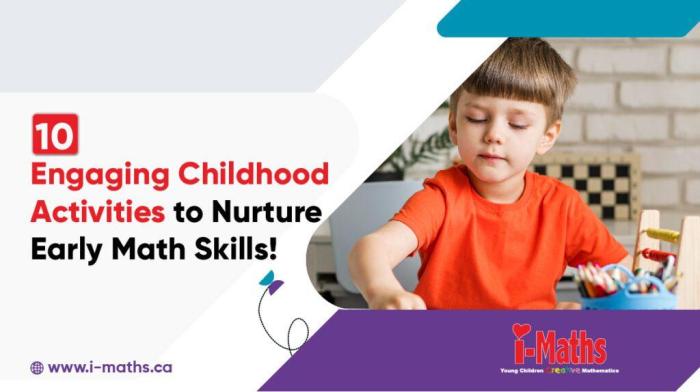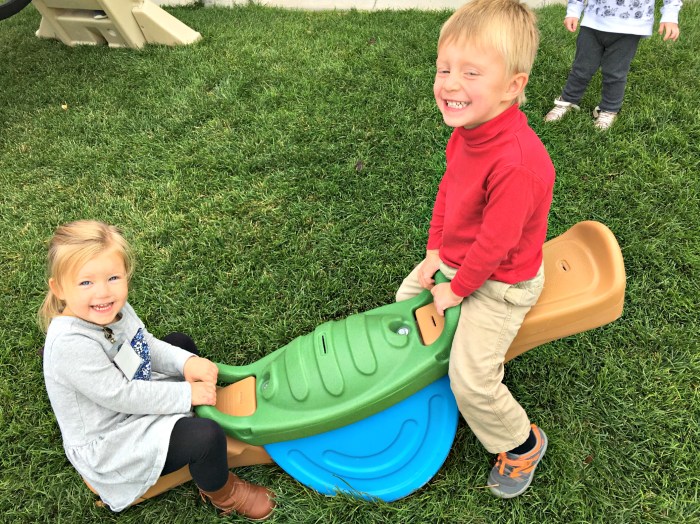
Early math skills are like the secret sauce in the recipe for a child’s future success—add a pinch of counting, a dash of shapes, and voilà! You’ve got a recipe for lifelong learning. These foundational skills are not just about numbers; they’re crucial for cognitive development and problem-solving abilities, setting the stage for everything from reading to rocket science!
In the enchanting world of preschoolers, basic math concepts such as counting blocks or sorting colorful toys lay the groundwork for more complex ideas. Engaging children in these activities paves a path to academic triumph, making math less of a monster and more of a playful puzzle.
Importance of Early Math Skills
In the grand tapestry of child development, early math skills are the vibrant threads that weave through a child’s cognitive growth. Just as a sturdy foundation is crucial for any building, foundational math abilities set the stage for future academic success. These skills help children not only to count but also to understand patterns, shapes, and the relationships between numbers, all of which are essential in navigating the world around them.The significance of early math skills extends beyond mere number crunching; they are vital for developing critical thinking and problem-solving abilities.
Preschoolers can dive into foundational concepts like counting, sorting, and recognizing shapes. For instance, counting objects while playing with blocks transforms a simple game into a delightful math lesson. Sorting colorful toys by size or color introduces the concept of categorization, while recognizing shapes can turn an ordinary walk in the park into a treasure hunt for circles, squares, and triangles.
Foundational Math Concepts for Preschoolers
Understanding foundational math concepts is like giving children a magic key that unlocks the door to a world of knowledge. These concepts not only prepare them for higher levels of math but also enhance their logical reasoning and analytical skills. Here are some essential foundational math concepts that preschoolers can grasp:
- Counting: Children often start their numerical journey by counting objects around them, whether it’s counting the number of apples in a basket or the ducks in a pond. This process helps them learn number sequences and one-to-one correspondence.
- Number Recognition: Recognizing numbers is akin to identifying letters in the alphabet. Children learn to recognize numbers through playful activities like matching games, where they match number cards to corresponding quantities.
- Basic Addition and Subtraction: Simple math operations can be introduced through hands-on activities such as sharing snacks. For example, if a child has three cookies and eats one, they can visually see the subtraction process.
- Patterns and Sequences: Recognizing and creating patterns, such as alternating colors in a string of beads, develops logical thinking and lays the groundwork for algebraic concepts in the future.
- Measurement: Engaging in measuring activities, like using a ruler to measure the length of a crayon, introduces children to concepts of size and comparison, enriching their understanding of the world.
- Shapes and Spatial Awareness: Activities like building with different shaped blocks help children identify shapes and understand spatial relationships, crucial for later geometry skills.
By nurturing these early math skills, parents and educators equip children with the tools they need to thrive academically. The joy of discovering numbers and their relationships fosters a positive attitude toward learning, setting them up for success in their educational journey and beyond.
Methods for Teaching Early Math Skills

Teaching young children early math skills can be akin to teaching a cat to fetch—challenging but oh-so-rewarding! To ignite the spark of curiosity about numbers and shapes, it’s essential to employ effective and engaging methods that resonate with their playful spirits. By weaving math into fun activities, children can develop foundational skills while having the time of their lives.Engaging kids with effective teaching strategies sets the stage for a positive math learning experience.
Strategies that incorporate hands-on activities and real-life applications not only capture their attention but also foster a genuine interest in math concepts. Let’s dive into some effective methods to get those little minds buzzing with numbers!
Effective Teaching Strategies for Introducing Math Concepts
One of the best ways to introduce math concepts is by creating a vibrant, interactive environment. This can be achieved through various playful approaches that encourage exploration and discovery. Here are some effective strategies to consider:
- Use Manipulatives: Provide children with tangible items like blocks, beads, or even snacks! They can count, sort, and create patterns, turning abstract concepts into something they can touch and manipulate.
- Incorporate Storytelling: Math-themed stories can captivate young minds. Create narratives that involve counting, measuring, or sorting, integrating math seamlessly into the story’s adventure.
- Games Galore: Utilize board games, card games, and interactive apps that require counting, adding, or strategizing. This makes learning math feel like play, not work!
Engaging Activities and Games to Promote Early Math Learning
To cultivate enthusiasm for early math skills, consider incorporating a variety of engaging activities and games that keep children excited. Here’s a list of fun-filled ideas that will have them counting and calculating in no time:
- Math Scavenger Hunt: Create a scavenger hunt where kids find items based on numbers or shapes. For instance, “Find three round objects” or “Collect five leaves.”
- Baking Together: Involve kids in measuring ingredients for a recipe. It’s a delicious way to practice fractions and measurement—sweetening the deal with yummy treats!
- Building with Blocks: Let children build structures using blocks while encouraging them to count the blocks they use or measure the height of their towers.
- Hopscotch Math: Draw a hopscotch grid and assign numbers to each square. As they hop from one to another, they can practice addition or subtraction based on their landings.
Incorporating Math in Daily Routines and Playtime
Incorporating math into daily routines transforms mundane tasks into exciting educational opportunities. Everyday activities provide a natural context for children to apply their math skills. Here are some practical ways to weave math into daily life:
- Grocery Shopping: Involve children in shopping by asking them to help count items, compare prices, or even make simple calculations on discounts. “If this banana costs 50 cents, how much do three bananas cost?”
- Setting the Table: Engage kids in counting plates, forks, and cups while setting the table. You can even assign them to create patterns with different colored napkins.
- Time Telling: Use clocks to teach children about time. Ask questions like, “If we start dinner at 5 PM and it takes 30 minutes, what time will we eat?”
- Outdoor Adventures: While out for a walk, involve children in counting steps, measuring distances, or identifying shapes in nature. “Look at that triangular roof!”
“Math is not just about numbers, it’s about life. Let’s make it fun!”
Connections to Broader Educational Themes

Early math skills may seem as simple as counting jellybeans, but they are as crucial as the secret ingredient in grandma’s famous cookies. These foundational skills weave into the tapestry of early childhood education, enhancing cognitive development, emotional intelligence, and social interactions. Understanding how math skills intersect with broader educational themes allows us to appreciate their role in nurturing well-rounded, capable humans ready to tackle anything from addition to adulting.Early math skills are not just a solitary island; they connect to various educational and developmental domains.
For instance, they play a pivotal role in fostering critical thinking and problem-solving abilities, which are essential for cognitive engagement in elder care. When we sharpen our little ones’ math skills, we equip them with tools that resonate throughout their educational journey and beyond, ensuring they become lifelong learners who can count on themselves (pun intended).
Integration with Essential Skills in Elder Care
The relationship between early math skills and essential skills in elder care reveals an intriguing landscape where data meets humanity. Cognitive engagement, especially in elder care, hinges on the ability to process information, solve problems, and connect with others. Early math skills contribute significantly to this engagement.Consider the following essential connections:
- Problem Solving: Just as children learn to solve simple equations, seniors benefit from engaging in problem-solving tasks to maintain cognitive sharpness.
- Social Interaction: Math-based games and activities encourage interaction, fostering relationships among both children and seniors.
- Memory and Recall: The act of counting, sorting, or even measuring reinforces memory, which is crucial in both early development and elderly care.
- Emotional Regulation: Engaging in math-related activities can help reduce anxiety levels in seniors, similar to how it provides a sense of accomplishment for young learners.
Resources for Supporting Early Math Learning
To support the development of early math skills, various resources are available for both parents and educators. These resources not only focus on the quantitative aspects of math but also address emotional and social dimensions, including sensitive topics like death and dying. Here are some valuable resources:
- Books: Literature that incorporates math concepts in stories helps children see the relevance of math in everyday life while addressing complex topics.
- Community Workshops: Local community centers often offer workshops for caregivers and parents that emphasize the importance of math in emotional development.
- Online Platforms: Websites and apps designed for early math skills often include features that help children process emotional experiences, such as loss and grief.
- Art Projects: Combining math with art provides a unique way to explore emotions while practicing counting, measuring, and sorting.
“Math is not just numbers; it’s a way of understanding the world, and that understanding can guide us through the toughest of times.”
The integration of early math skills into broader educational themes prepares children not only for academic success but also for the myriad of emotional and social challenges they may face, including sensitive life topics. With a dash of creativity and a sprinkle of humor, we can make these connections resonate in ways that matter.
Ending Remarks
In conclusion, nurturing early math skills is like planting a garden; with proper care and attention, it flourishes into a bounty of knowledge that supports children throughout their educational journey. By weaving math into everyday play and routines, we equip our little learners with tools that not only help them in school but also in navigating the wonderfully weird world around them.
Answers to Common Questions
Why are early math skills important?
They form the foundation for future learning, enhance critical thinking, and boost overall academic performance.
What activities can help develop early math skills?
Simple games like counting toys, shape sorting, and even cooking can make math fun and interactive!
How can parents incorporate math into daily routines?
By counting steps, measuring ingredients, or even talking about shapes while shopping, parents can seamlessly integrate math into everyday life.
At what age should I start teaching my child math skills?
Starting as early as toddlerhood is beneficial; simple concepts can be introduced through playful interactions.
Are there resources available for parents to support early math learning?
Absolutely! Many books, apps, and educational websites offer fun activities focused on early math skills.







